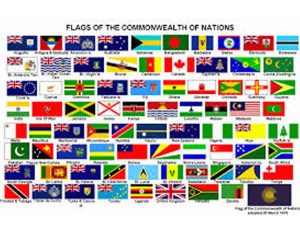Citing the shortcomings of the 1999 Constitution (as amended), the Nigeria Indigenous Nationalities Alliance for Self-Determination (NINAS) has urged the Federal Government to suspend the 2023 general elections.
The group, in a statement yesterday, signed by Otunba Shade Olukoya for the Ilana Oodua; Prof. Yussuf Turaki (Middle Belt) Tony Nnadi (South East) and Dr. Rotimi Olokodana (South West), noted that the step was to discourage the continued operationalisation of the document.
It also called for a formal announcement by the Federal Government that it had received the constitutional grievances and sovereignty dispute declared by the people of South and Middle-Belt.
The group, in a five-point proposition, equally demanded an official commitment of the government to the “wholesale decommissioning and jettisoning of the 1999 Constitution as the basis of the federation, as was done by the government of apartheid-era South Africa in 1990.”
The coalition sought also for formal initiation of a time-bound transitioning process to midwife the emergence of fresh constitutional protocols by a two-stage process in which the constituent regional blocs would at the first stage, distil and ratify their various constitutions by referendums and plebiscites, and in the second stage, negotiate the terms of federating afresh as may be dictated by outcomes of the referendums and plebiscites.
NINAS equally asked for a formal invitation to the people of the South and Middle-Belt to work out and enthrone a transitional authority, “which shall specify the modalities for the transitioning process, including the composition and mandate of the transitional authority, as well as the timeframe for the transitioning and other ancillary matters.”
The statement reads: “As indicated in the five-point proposition by NINAS, the successor constitutional arrangements, dictated by the Self-Determination Right of the Peoples of Nigeria, shall be ratified by referendums and plebiscites, to be undertaken during a period of transitioning that would commence from the point at which a formal announcement is made suspending preparations for further national elections under the repudiated 1999 Constitution.
“As we prepare to commence the practical winding-up processes for, and orderly retirement of the 1999 Constitution, let us remind ourselves that everything we currently lament in Nigeria flows from the 1999 unitary constitution, whether it is the killings going on everywhere in Nigeria, the general insecurity, the seizure of all economic assets, including oil and gas, the ports and other maritime assets, solid minerals, gold and the monumental corruption we see.”
It added: “Nothing will get better in Nigeria under this unitary constitutional order, no matter who gets to power.”
“Let us also remind ourselves that whether we seek regional autonomy, resource control or outright exit from Nigeria to become an independent sovereign state, the first order of business is the decommissioning and easing out of the 1999 Constitution, then a transitioning process during which referendums, plebiscites and negotiations for fresh Protocols will be undertaken as indicated in the NINAS five-point proposition.”
The group restated that the “source from which the woes and miseries of Nigerians flow is the 1999 Unitary Constitution of Nigeria, while the life of the 1999 Constitution is renewed and reinforced once every four years by general elections.”




